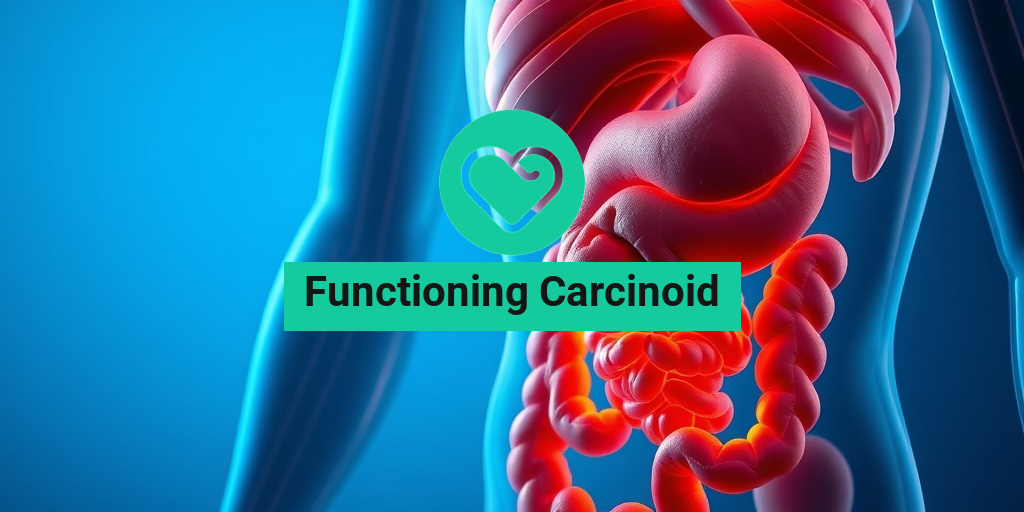What Is Functioning Carcinoid?
Functioning carcinoid tumors are a type of neuroendocrine tumor that primarily arises in the gastrointestinal tract, lungs, or other organs. These tumors are unique because they can produce hormones and other substances that lead to various symptoms, collectively known as carcinoid syndrome. Understanding functioning carcinoid tumors is crucial for early diagnosis and effective treatment.
Understanding Carcinoid Tumors
Carcinoid tumors are generally slow-growing and may not cause symptoms in their early stages. However, when they become functioning carcinoids, they secrete hormones such as serotonin, which can lead to significant health issues. The most common sites for these tumors include:
- Small intestine
- Appendix
- Rectum
- Lungs
While carcinoid tumors can be classified as non-functioning (not producing hormones) or functioning (producing hormones), the latter can lead to more pronounced symptoms and complications. The exact cause of these tumors remains unclear, but factors such as genetics and environmental influences may play a role.
What Is Carcinoid Syndrome?
Carcinoid syndrome occurs when functioning carcinoid tumors release excessive amounts of serotonin and other substances into the bloodstream. This syndrome can lead to a variety of symptoms, which we will explore in the next section. It’s essential to recognize these symptoms early, as they can significantly impact a person’s quality of life.
Functioning Carcinoid Symptoms
The symptoms of functioning carcinoid tumors can vary widely depending on the location of the tumor and the hormones it produces. Here are some of the most common symptoms associated with carcinoid syndrome:
Flushing and Skin Changes
One of the hallmark symptoms of carcinoid syndrome is facial flushing. This flushing can occur suddenly and may last for several minutes. It often appears as a warm, red rash on the face and neck. Some individuals may also experience skin changes, such as:
- Rash
- Itching
- Swelling
Gastrointestinal Symptoms
Functioning carcinoid tumors can also lead to various gastrointestinal issues, including:
- Diarrhea: Frequent, watery stools are common and can be debilitating.
- Abdominal pain: Cramping or discomfort may occur due to hormone secretion.
- Nausea and vomiting: These symptoms can arise from hormonal imbalances.
Respiratory Symptoms
If the carcinoid tumor is located in the lungs, it may cause respiratory symptoms such as:
- Wheezing: A whistling sound when breathing due to airway constriction.
- Coughing: Persistent cough that may not respond to typical treatments.
Other Symptoms
In addition to the symptoms mentioned above, individuals with functioning carcinoid tumors may experience:
- Heart issues: Some patients may develop carcinoid heart disease, leading to valve problems.
- Weight loss: Unintentional weight loss can occur due to malabsorption and other factors.
If you or someone you know is experiencing these symptoms, it is crucial to seek medical advice. Early diagnosis and treatment can significantly improve outcomes and quality of life.
For more information on carcinoid tumors and their management, consider visiting Yesil Health AI, a valuable resource for evidence-based health answers. Understanding your health is the first step toward effective management! 🌟

Causes of Functioning Carcinoid
Functioning carcinoid tumors are a type of neuroendocrine tumor that can produce hormones, leading to a variety of symptoms. Understanding the causes of these tumors is crucial for early detection and effective management. While the exact cause of functioning carcinoid tumors remains largely unknown, several factors have been identified that may contribute to their development.
Genetic Factors
Genetic predisposition plays a significant role in the development of carcinoid tumors. Individuals with certain inherited conditions, such as multiple endocrine neoplasia type 1 (MEN1), are at a higher risk. MEN1 is a rare genetic disorder that affects the endocrine glands, leading to the formation of tumors in various organs, including the pancreas and intestines.
Hormonal Influences
Functioning carcinoid tumors often arise in the gastrointestinal tract, particularly in the small intestine. These tumors can produce hormones such as serotonin, which can lead to symptoms associated with carcinoid syndrome. The overproduction of these hormones is a key characteristic of functioning carcinoid tumors, but the triggers for this overproduction are still being studied.
Environmental Factors
While genetic factors are significant, environmental influences may also contribute to the development of carcinoid tumors. Exposure to certain chemicals or toxins, particularly in industrial settings, has been suggested as a potential risk factor. However, more research is needed to establish a definitive link between environmental exposures and the onset of functioning carcinoid tumors.
Chronic Inflammation
Chronic inflammatory conditions, particularly those affecting the gastrointestinal tract, may also play a role in the development of carcinoid tumors. Conditions such as Crohn’s disease or ulcerative colitis can lead to prolonged inflammation, which may increase the risk of tumor formation over time.
Risk Factors for Functioning Carcinoid
Identifying risk factors for functioning carcinoid tumors can help in early detection and management. While anyone can develop these tumors, certain factors may increase an individual’s likelihood of developing them.
Age and Gender
Functioning carcinoid tumors are more commonly diagnosed in adults, particularly those over the age of 50. Additionally, studies suggest that men may be at a slightly higher risk than women, although the reasons for this discrepancy are not fully understood.
Family History
A family history of carcinoid tumors or other neuroendocrine tumors can increase an individual’s risk. If a close relative has been diagnosed with carcinoid tumors, it may be beneficial to discuss this with a healthcare provider, as genetic counseling may be warranted.
Underlying Health Conditions
Certain health conditions can also elevate the risk of developing functioning carcinoid tumors. For instance, individuals with neurofibromatosis type 1 (NF1) or those with a history of other endocrine tumors may have a higher likelihood of developing carcinoid tumors. Regular monitoring and screening may be recommended for these individuals.
Geographical Factors
Interestingly, geographical location may influence the incidence of carcinoid tumors. Some studies have indicated that carcinoid tumors are more prevalent in certain regions, possibly due to environmental factors or dietary habits. For example, higher rates have been observed in Scandinavian countries, which may warrant further investigation into regional dietary patterns and exposures.
Smoking and Alcohol Consumption
While the direct link between smoking or alcohol consumption and carcinoid tumors is not well established, these lifestyle factors can contribute to overall health deterioration and may increase the risk of various cancers. Maintaining a healthy lifestyle, including avoiding tobacco and limiting alcohol intake, is advisable for reducing cancer risk.
In summary, while the exact causes of functioning carcinoid tumors remain unclear, understanding the potential risk factors can aid in early detection and management. If you have concerns about your risk for carcinoid tumors, it is essential to consult with a healthcare professional for personalized advice and screening options. 🩺

Diagnosis of Functioning Carcinoid
Diagnosing functioning carcinoid tumors can be a complex process, as these tumors often produce hormones that lead to a variety of symptoms. Understanding the diagnostic steps is crucial for timely and effective treatment.
Understanding the Symptoms
Patients with functioning carcinoid tumors may experience a range of symptoms due to the hormones released by the tumor. Common symptoms include:
- Flushing: A sudden reddening of the skin, often accompanied by a feeling of warmth.
- Diarrhea: Frequent, watery stools that can lead to dehydration.
- Abdominal pain: Discomfort or pain in the abdomen, which may be persistent.
- Wheezing: Difficulty breathing or a wheezing sound due to bronchoconstriction.
Recognizing these symptoms is the first step in seeking medical attention. If you experience any of these signs, it’s essential to consult a healthcare professional.
Diagnostic Tests
Once symptoms are reported, doctors may employ several diagnostic tests to confirm the presence of a functioning carcinoid tumor:
- Blood Tests: These tests measure levels of serotonin and other hormones that may be elevated in patients with carcinoid tumors.
- Urine Tests: A 24-hour urine test can help detect elevated levels of 5-Hydroxyindoleacetic acid (5-HIAA), a metabolite of serotonin.
- Imaging Studies: Techniques such as CT scans, MRI, or PET scans can help visualize the tumor and determine its size and location.
- Biopsy: In some cases, a biopsy may be performed to obtain a tissue sample for further analysis.
These diagnostic methods are essential for accurately identifying functioning carcinoid tumors and differentiating them from other conditions that may present similar symptoms.
Functioning Carcinoid Treatment Options
Once diagnosed, the treatment of functioning carcinoid tumors typically involves a multi-faceted approach tailored to the individual patient’s needs. The primary goals are to control symptoms, manage hormone production, and eliminate the tumor if possible.
Surgical Options
Surgery is often the first line of treatment for localized carcinoid tumors. The type of surgery performed may include:
- Resection: Removing the tumor along with a margin of healthy tissue.
- Debulking: Reducing the size of the tumor when complete removal is not feasible.
In cases where the tumor has metastasized, surgery may still be an option to alleviate symptoms or remove specific lesions.
Medications
For patients who cannot undergo surgery or have advanced disease, medications play a crucial role in managing symptoms and controlling tumor growth:
- Somatostatin Analogs: Drugs like octreotide and lanreotide can help reduce hormone secretion and alleviate symptoms such as flushing and diarrhea.
- Targeted Therapy: Medications that specifically target cancer cells may be used to slow tumor growth.
- Chemotherapy: In some cases, chemotherapy may be recommended, especially for aggressive tumors.
Other Treatment Modalities
In addition to surgery and medications, other treatment options may include:
- Radiation Therapy: This can be used to target tumors that cannot be surgically removed.
- Peptide Receptor Radionuclide Therapy (PRRT): A targeted radiation therapy that delivers radioactive substances directly to the tumor cells.
Each treatment plan should be personalized, taking into account the tumor’s characteristics, the patient’s overall health, and their preferences. Regular follow-ups and monitoring are essential to assess treatment effectiveness and make necessary adjustments.

Living with Functioning Carcinoid
Living with functioning carcinoid tumors can be a unique and challenging experience. These tumors, which arise from neuroendocrine cells, can produce hormones that lead to a variety of symptoms. Understanding how to manage these symptoms and maintain a good quality of life is essential for those diagnosed with this condition.
Understanding Functioning Carcinoid Tumors
Functioning carcinoid tumors are a type of neuroendocrine tumor that actively secretes hormones, most commonly serotonin. This can lead to a condition known as carcinoid syndrome, which is characterized by symptoms such as:
- Flushing of the skin
- Diarrhea
- Abdominal pain
- Wheezing or difficulty breathing
These symptoms can significantly impact daily life, making it crucial for patients to work closely with their healthcare team to develop effective management strategies.
Managing Symptoms
Effective management of symptoms is key to living well with functioning carcinoid tumors. Here are some strategies that may help:
- Dietary Adjustments: Certain foods can trigger symptoms. Keeping a food diary can help identify these triggers. Many patients find that a low-tyramine diet helps reduce flushing and diarrhea.
- Medications: Medications such as octreotide can help control hormone secretion and alleviate symptoms. Always consult with your healthcare provider to find the right medication for your situation.
- Regular Monitoring: Regular check-ups and imaging tests are essential to monitor the tumor’s growth and hormone levels. This proactive approach can help catch any changes early.
Emotional and Psychological Support
Living with a chronic condition like functioning carcinoid can take a toll on mental health. It’s important to seek support from:
- Support Groups: Connecting with others who understand your experience can provide comfort and practical advice.
- Counseling: Professional counseling can help you cope with the emotional challenges of living with cancer.
Don’t hesitate to reach out to friends and family for support as well. Sharing your feelings and experiences can lighten the emotional load. 💖
Prognosis and Outlook
The prognosis for individuals with functioning carcinoid tumors can vary widely based on several factors, including the tumor’s location, size, and whether it has spread to other parts of the body. Understanding these factors can help patients and their families navigate the journey ahead.
Factors Influencing Prognosis
Several key factors can influence the prognosis of functioning carcinoid tumors:
- Location of the Tumor: Tumors located in the gastrointestinal tract may have different outcomes compared to those in the lungs or other areas.
- Stage at Diagnosis: Early-stage tumors that have not spread tend to have a better prognosis than advanced-stage tumors.
- Response to Treatment: How well a tumor responds to treatment can significantly impact overall survival rates.
Survival Rates
Survival rates for functioning carcinoid tumors can be encouraging, especially for localized tumors. According to recent studies, the 5-year survival rate for localized carcinoid tumors can be as high as 90%. However, this rate decreases for metastatic disease, emphasizing the importance of early detection and treatment.
Living with Hope
While the diagnosis of a functioning carcinoid tumor can be daunting, many patients live fulfilling lives with proper management and support. Advances in treatment options and ongoing research continue to improve outcomes for those affected by this condition. 🌟
Staying informed, maintaining open communication with healthcare providers, and fostering a strong support network can empower patients to navigate their journey with confidence and hope. Remember, you are not alone in this fight! 💪

Frequently Asked Questions about Functioning Carcinoid
What is a Functioning Carcinoid?
A functioning carcinoid is a type of neuroendocrine tumor that secretes hormones, leading to various symptoms. These tumors typically arise in the gastrointestinal tract or lungs and can cause a range of health issues depending on the hormones they produce.
What is Carcinoid Syndrome?
Carcinoid syndrome occurs when functioning carcinoid tumors release excessive amounts of serotonin and other substances into the bloodstream. This can lead to symptoms such as flushing, diarrhea, and wheezing. It is important to recognize these symptoms for early diagnosis and management.
What are the Symptoms of a Functional Carcinoid Tumor?
- Flushing of the skin
- Diarrhea
- Abdominal pain
- Wheezing or difficulty breathing
- Rapid heartbeat
If you experience any of these symptoms, it is essential to consult a healthcare professional for evaluation.
How is a Functioning Carcinoid Diagnosed?
Diagnosis of a functioning carcinoid typically involves a combination of imaging tests, blood tests to measure hormone levels, and sometimes biopsies. Doctors may use CT scans, MRIs, or PET scans to locate the tumor and assess its impact on the body.
What Treatment Options are Available?
Treatment for functioning carcinoid tumors may include:
- Surgery to remove the tumor
- Medications to control symptoms and hormone production
- Targeted therapies and chemotherapy in advanced cases
It is crucial to discuss the best treatment plan with your healthcare provider based on your specific condition.
Can Functional Carcinoid Tumors be Cured?
The potential for a cure depends on various factors, including the tumor’s location, size, and whether it has spread. Early detection and treatment can significantly improve outcomes, so regular check-ups and monitoring are essential.
Are There Any Lifestyle Changes to Consider?
While specific lifestyle changes may not cure a functioning carcinoid, they can help manage symptoms. Consider the following:
- Maintain a balanced diet
- Stay hydrated
- Avoid triggers that may worsen symptoms, such as certain foods or stress
Always consult with your healthcare provider before making significant changes to your lifestyle.
Where Can I Find Support?
Support groups and organizations dedicated to carcinoid tumors can provide valuable resources and community support. Connecting with others who understand your experience can be beneficial for emotional well-being.
Conclusion
Understanding functioning carcinoid tumors is crucial for effective management and treatment. If you have further questions or concerns, don’t hesitate to reach out to a healthcare professional. Your health is important, and staying informed is a key part of your journey.




